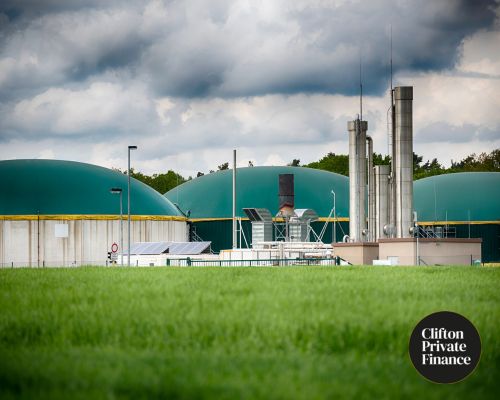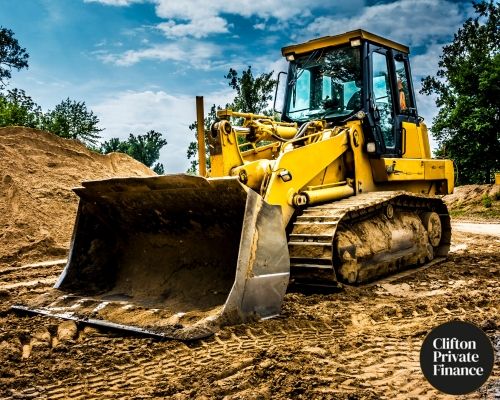Because equipment finance is such a broad term, many speciality funding options exist within it.
Consequently, equipment finance is sometimes referred to as any of the following (and more):
- Asset finance
- Equipment funding
- Leasing (including finance leasing, or operational leasing)
- Vehicle Finance
- Technology Finance
- Hire purchase
- Car leasing
- Agriculture finance
- Tractor leasing
Note that all of these terms typically refer to a subsection or aspect of equipment finance, often tailored for a specific need.
Read blog: SaaS Finance | How to Get SaaS Funding & How it Works
Types of Equipment Finance
There are 3 main types of equipment finance:
- Hire Purchase
- Finance Lease
- Operational Lease
In each, you spread the cost of the equipment over time, meaning you don’t need to have significant capital in order to obtain the equipment.
There are a number of smaller differences between the three main types of equipment-specific asset finance, but the core idea of each is simple:
Hire Purchase
Hire purchase is essentially a loan to buy the equipment. As the loan is tied to the asset, should you fail to make repayments, it will be repossessed by the lender.
With hire purchase, you are the owner of the equipment and are able to dictate its usage. Similarly, all maintenance and insurance is fully your responsibility.
Finance Lease
With a finance lease, you make monthly repayments on the equipment to the finance company for a number of months agreed in the terms of the contract.
While you do not own the equipment, it is treated in a very similar way - you will be responsible for maintenance and insurance, but you will have fewer restrictions on its use.
At the end of your lease term, you will be able to purchase the equipment for a pre-arranged cost, or you can return it to the leasing company. There may be additional fees if any damage has been done to the equipment beyond reasonable wear and tear.
Operational Lease
An operational lease is essentially a rental agreement. You do not own the equipment and are not responsible for its maintenance.
Depending on the specifics of your operational lease contract, the leasing company may also provide insurance.
There will be limitations on the equipment’s use, and any damage done to it will incur additional fees.
Under an operational lease, when the lease term is completed, you will have to hand back the equipment to the leasing company with no option for purchase.
Comparing Equipment Finance Options
Here's a simple table comparing the best equipment finance options based on the specific needs of different businesses:
|
|
Hire Purchase |
Finance Lease |
Operational Lease |
|
Ownership During Contract |
You |
The Leasing Company |
The Leasing Company |
|
Ownership After Contract |
You |
You |
The Leasing Company |
|
Maintenance |
You |
You |
The Leasing Company |
|
Insurance |
You |
You |
Depends on Contract |
|
Restrictions on Use |
None |
Some |
Yes |
|
Initial Cost (Deposit) |
Largest |
Moderate |
Small |
|
Final Payment (Balloon) |
Large |
Largest |
None |
|
Monthly Payments |
Moderate |
Moderate |
Largest |
|
Final Fees for Damage |
No |
Yes |
Yes |
|
Best For |
Long Term Ownership |
Long Term Use with Ownership Option |
Short to Medium Term Hire |
Types of Equipment Eligible for Finance
Equipment funding is available for a huge spread of specialised items, from computers to tractors.
In many cases, leasing companies will be willing to consider purchasing the item on your behalf and work with you to create a finance lease that is tailored to your specific business.
While these specialised leases may take longer to set up, they are no less valid than some of the more common leasing options.
At Clifton Private Finance, we have seen an interesting spread of equipment finance, from the tried and tested vehicle lease options to some truly rare alternatives.
We can source equipment finance for:
- Office furniture
- Computer workstations
- Networking infrastructure
- Specialised vehicles, such as tractors, articulated lorries, refrigerated vans and more
- Medical equipment, such as MRI machines, specialist dentist X-Ray scanners, etc.
- High-end technology equipment, for example, electronics assembly line QA and fault scanning machinery
- Construction equipment, including cranes
- Bespoke machinery, such as packaging machines
If your business needs an uncommon piece of equipment, the right lease for it is just around the corner.
Alternatives to Equipment Finance
Of course, specialist equipment finance is not the only way to get the capital needed to invest in equipment. Consider:
Unsecured Business Loan
If you business credit history is strong, you may be able to obtain an unsecured business loan that will cover the investment. This may provide a more desirable level of control regarding repayments and fees that is more beneficial to your business model.
Secured Business Loan
If you have other valuable assets, you may want to consider a secured asset-based loan utilising those assets as collateral. Secured business loans may have the advantage of a lower rate of interest, as well as providing additional capital for you to use in other areas of business expansion.
Invoice Finance
Do you need your new equipment as part of an exciting new project with a client? Invoice finance can unlock the funds tied in your accounts receivable, effectively getting those invoices paid early. This could be the perfect way to purchase the machines you need prior to undertake the project.
Investment
Investment from a third party, either angel investment, or even that of family or friends, could provide your business with the capital it needs to purchase specialist equipment without having to leverage credit.
Crowdsourcing
Though a successful crowdfunding project requires a strong marketing campaign, many businesses have successfully used crowdfunding to expand and obtain new machinery.
If you feel an alternative might be better for your business, speak to our experts and we can help you make the right decision.

Equipment Finance with Clifton Private Finance
Getting specialist equipment for your business can sometimes seem out of reach, especially when the cost of the equipment is greater than the immediate income from its use.
Investing in equipment can have significant long-term benefits, opening your business up to greater opportunities in the future, but it’s not always possible to simply purchase expensive specialist equipment without additional finance.
Thankfully, equipment finance can help.
Whether you are considering a finance lease, an operational lease, or a hire purchase agreement, we can work with you to obtain the best deal on the market. Contact us today for a rapid assessment and specialist expert help.












